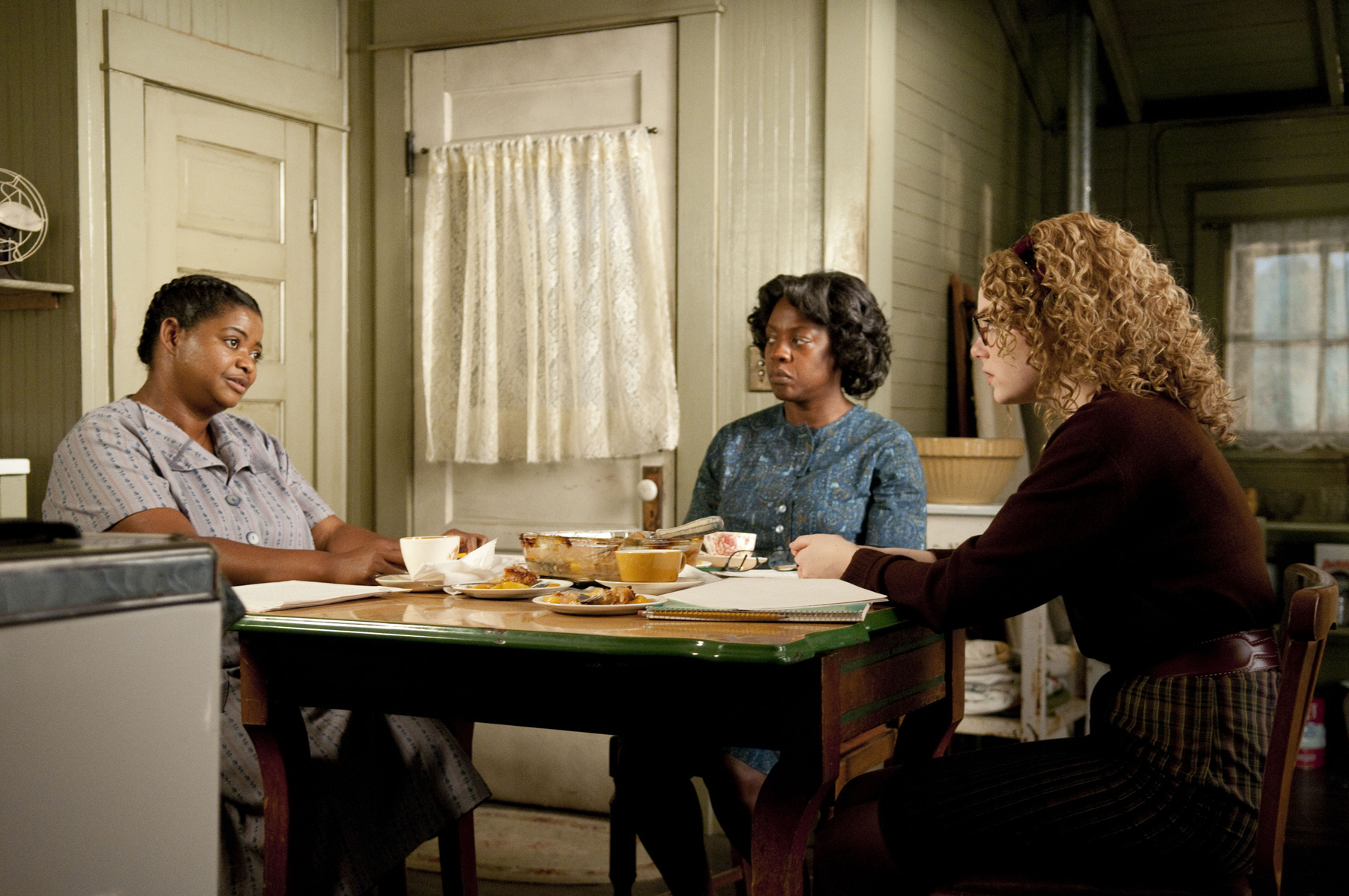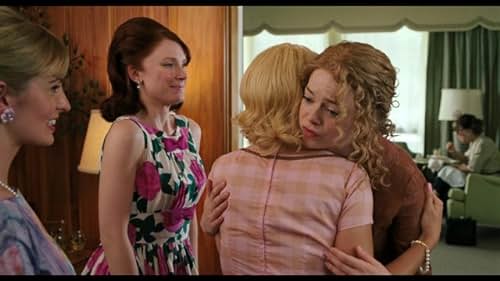The Help (2011)

The Help (2011)
The Help (2011) is a poignant and heartwarming exploration of race, resilience, and redemption set against the backdrop of the racially segregated South in the 1960s. Directed by Tate Taylor and based on Kathryn Stockett’s bestselling novel, the film deftly balances humor and heartbreak, offering a compelling look at a pivotal moment in American history.
The story revolves around Skeeter Phelan (Emma Stone), an aspiring journalist who dares to uncover the untold stories of African-American maids working in white households. Skeeter’s partnership with two courageous maids, Aibileen (Viola Davis) and Minny (Octavia Spencer), forms the heart of the narrative. Their journey to document their lives, hardships, and hopes is both inspiring and deeply emotional.

TH-006
In Jackson, Mississippi in 1963, Minny Jackson (Octavia Spencer, left), Aibileen Clark (Academy Award¨ nominee Viola Davis, center) and Skeeter Phelan (Emma Stone, right) form an improbable alliance, resulting in a remarkable sisterhood that instills all of them with the courage to transcend the lines that define them, in DreamWorks PicturesÕ inspiring drama, ÒThe Help,Ó based on the New York Times best-selling novel by Kathryn Stockett. ÒThe HelpÓ is written for the screen and directed by Tate Taylor, with Brunson Green, Chris Columbus and Michael Barnathan producing.
Ph: Dale Robinette
©DreamWorks II Distribution Co., LLC. ÊAll Rights Reserved.
 Viola Davis delivers a breathtaking performance as Aibileen, exuding quiet strength and dignity. Octavia Spencer, in her Oscar-winning role, brings humor and fiery determination to Minny, providing a balance to the film’s heavier themes. Emma Stone’s Skeeter is earnest and engaging, serving as a bridge between the maids’ stories and the privileged world she inhabits.
Viola Davis delivers a breathtaking performance as Aibileen, exuding quiet strength and dignity. Octavia Spencer, in her Oscar-winning role, brings humor and fiery determination to Minny, providing a balance to the film’s heavier themes. Emma Stone’s Skeeter is earnest and engaging, serving as a bridge between the maids’ stories and the privileged world she inhabits.
The film’s authenticity is bolstered by its richly detailed setting, from the costumes to the lush Southern landscapes. The screenplay captures the nuanced dynamics of race and power, though it occasionally veers into oversimplification. Nonetheless, it effectively conveys the systemic injustices of the era while celebrating acts of courage and kindness.
The Help is not just a film about injustice; it is a tribute to the power of storytelling as a means of resistance. While some critics have debated its focus on a white protagonist in a Black-centric narrative, the film succeeds in sparking conversations about empathy and understanding.
Ultimately, The Help is a moving reminder of the human spirit’s capacity to inspire change, making it a must-watch for audiences seeking both entertainment and enlightenment.











